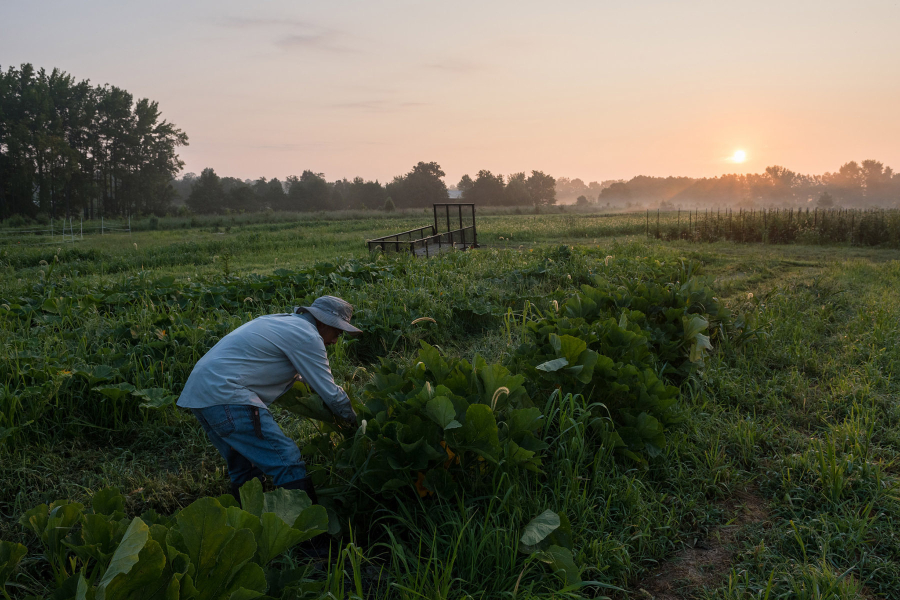Growing healthy food for a healthy waterway

Miguel Sacedo harvests squash on Cottingham Farm in Easton, Maryland, at sunrise. Owned by environmental-lawyer-turned-farmer Cleo Braver, the 156-acre farm has a mission to produce sustainably grown, locally distributed and certified organic food.
Years ago, Braver was unaware of the impact certain agricultural techniques could have on local waterways. But after some research, she learned how the use of excessive pesticides and fertilizers was partially responsible for the poor water quality in Goldsborough Neck Creek, a tributary of the Miles River that runs behind her house. Braver’s interest in producing healthy food while minimizing her impact prompted her to make a change.
Now, Cottingham Farm is home to a variety of restoration efforts, including forest buffers that help trap nutrients and sediment from running into local waterways. The land is also home to an 18-acre wetland—a once-cornfield that was transformed into habitat for shorebirds and waterfowl with the help of Chesapeake Wildlife Heritage, Maryland Department of Natural Resources and the USDA Conservation Reserve Enhancement Program (CREP).
Learn more about Cottingham Farm, or learn about the effects of agriculture on the Chesapeake Bay.

Comments
There are no comments.
Thank you!
Your comment has been received. Before it can be published, the comment will be reviewed by our team to ensure it adheres with our rules of engagement.
Back to recent stories